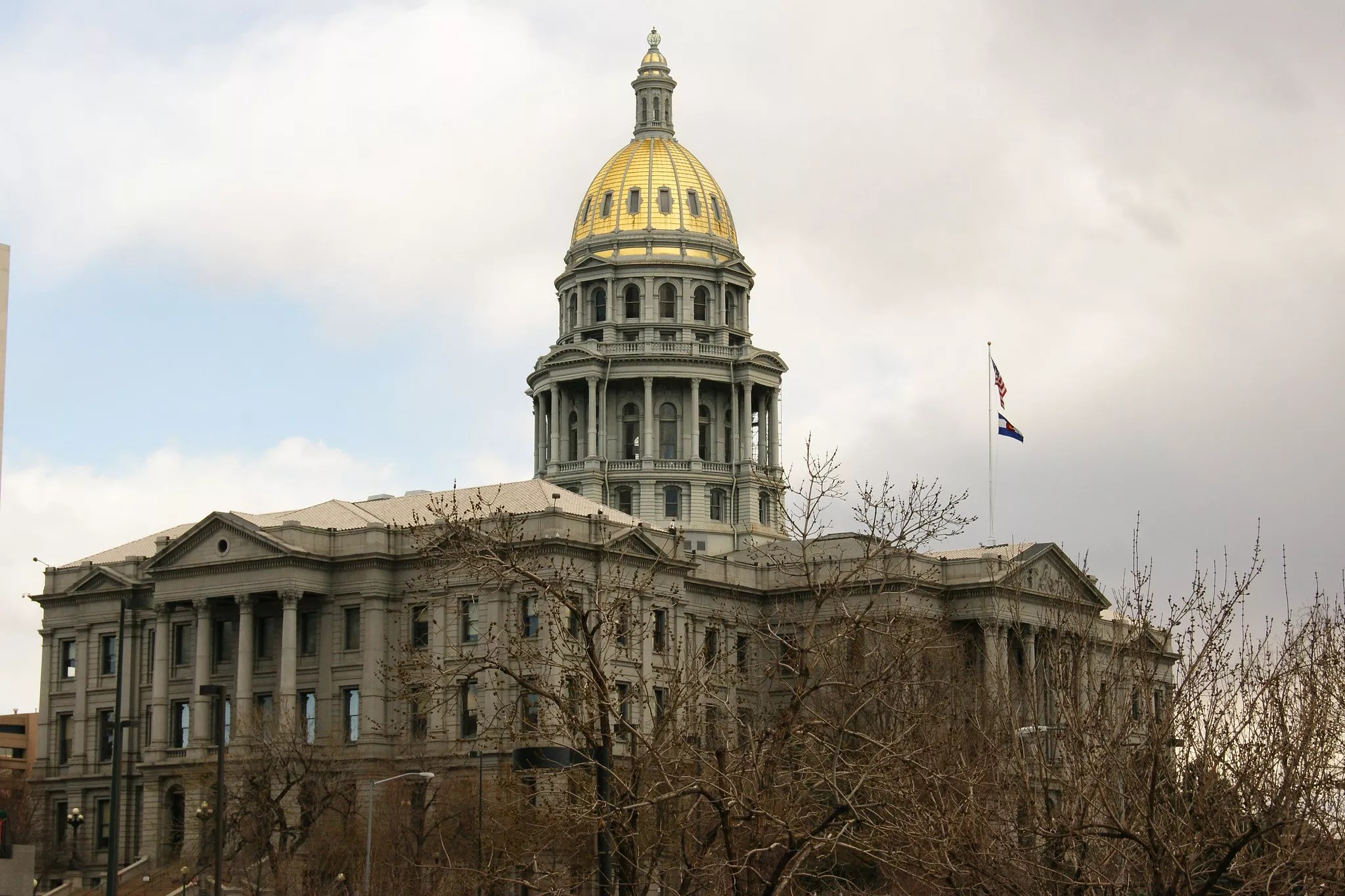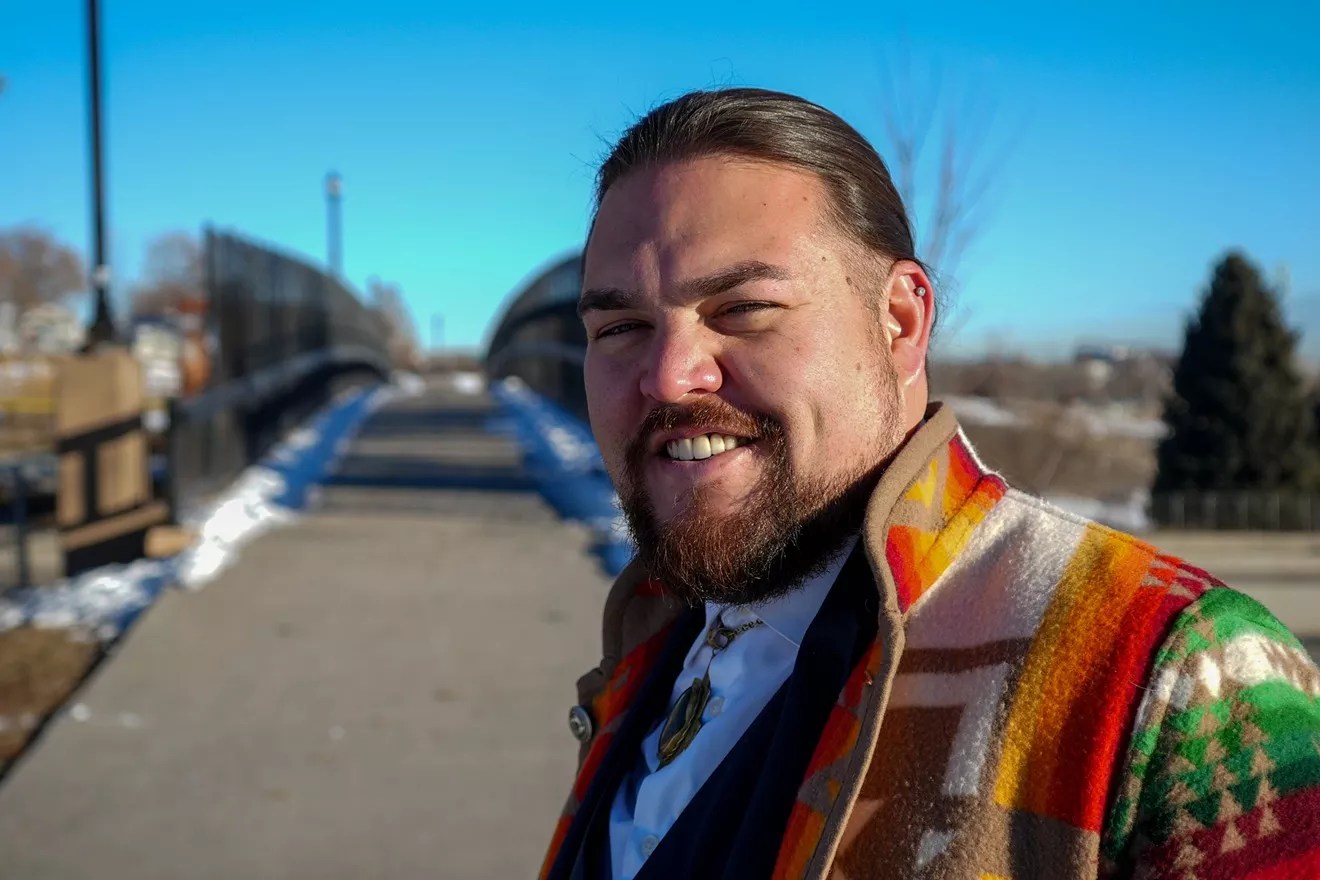

Audio By Carbonatix
The 2023 Colorado legislative session included the passage of numerous environmental bills, with topics ranging from water to electric vehicles. However, environmental advocates warn that the state may not have done enough when it comes to certain matters – like air pollution.
“It was a mixed bag this legislative cycle, with losses, with wins,” says Ean Thomas Tafoya, state director of GreenLatinos, an environmental organization. “Certainly, you would think with the trifecta, it would have been less mixed.”
Democrats controlled the Senate, House and the governor’s office this session, with strong majorities in both chambers. The 2023 legislative season was also the first to take place after the Environmental Justice Action Task Force – established in 2021 through HB 1266, the Environmental Justice Act – formalized its policy and legislative recommendations on ways to address environmental justice inequalities across the state, with a focus on disproportionately impacted communities.
Tafoya, who was co-chair of that task force, says he saw many legislators and agencies considering these recommendations, but the work to realize the 2021 Environmental Justice Act isn’t over.
“We firmly believe that we’ve laid out a North Star and a road map,” he says. “We hope that all rulemakings, all community engagement, all data transparency, all permits flow through those recommendations.”
Despite some setbacks, a good bit of the legislative sausage that was pushed by environmental advocates was able to get made this year, including updating the statewide definition of disproportionately impacted communities, among other things.
Water Wins, including the Colorado River and mobile homes
Four water-related bills made a splash in this legislative session, like HB23-1257 – which will improve water quality in mobile home parks. Because of SB23-295, a task force to address drought on the Colorado River will convene by the end of July.
One piece of legislation, HB23-1242, will encourage water conservation in Colorado’s oil and gas industry.
Another bill to highlight: SB23-274, aka Water Quality Control Fee-Setting By Rule.
Before this year, the state Air Quality Control Commission could set fees for activities under its purview such as permitting and reviews, but the Water Quality Control Commission couldn’t; instead, the legislature reassessed those fees every seven years. That changed with SB23-274, which says the WQCC can set its own fees.
“That’s really important for two reasons,” Tafoya notes. “One is we passed the bill last year mandating the Water Quality Control Commission and Division to increase their community engagement and translation, so we feel like the commission is a great place for us to be involved in those conversations.”
Because of that, WQCC proceedings are designed to include public outreach in a way the legislature is not.
The second reason Tafoya gives for the bill’s importance is that giving the WQCC more flexibility to set its own appropriate fees every year will help keep bad actors in check.
Shopping just got more environmentally friendly
The legislature tackled environmental standards for appliances in HB23-1161 and drove home two bills related to electric vehicles: HB23-1233, Electric Vehicle Charging and Parking Requirements, and HB23-1272, Tax Policy That Advances Decarbonization.
How it impacts you: Thanks to the appliance standards bill, common household items like furnaces, shower heads, water heaters and certain lamps must meet stronger water and energy efficiency standards to be sold in Colorado. Some items are already regulated but getting more stringent protections, while others will be newly regulated starting in 2026.
“We’ll be reducing energy waste and saving consumers money, and that’s always a good thing,” says Kirsten Schatz, clean air advocate with the Colorado Public Interest Research Group. “One of the best parts about this is that it doesn’t put a lot of onus on the consumer and the average person shopping for an appliance to figure out what the best option will be. All of the products on the shelf are going to be more efficient than they are currently.”
Schatz points out that the bill could be especially advantageous to renters who may not have much control over the appliances in their homes; even the least-expensive appliances will be safer and bring utility bills down.
As far as EV charging and parking, HB23-1161 will help people living in apartments access EV charging capabilities and build more places for people to access charging stations on the go. But the bill also includes a much bigger impact: it changes the definition of disproportionately impacted communities for all statewide agencies to protect residents, while also insulating the state from legal challenges that could have stemmed from the original definition’s provisions around race.
The definition still includes race, as the EJ Task Force recommended, but there is now a clause that would mean that the rest of the definition can be separated from the race aspect if needed.
“There’s some fear about Trump’s Supreme Court and affirmative action,” Tafoya notes. He says the definition was included in this bill because it had the space and time to get the right language passed.
As far as the tax credits bill goes, people would be able to get more tax credits for purchasing EVs, e-bikes and heat pumps. Schatz says policies like this could help ease the state’s ozone problem, which is prominent in metro Denver.
“It’s not going to solve our ozone pollution overnight, but this is definitely the direction that we need to be headed,” she says.
However, the bill is one of those “mixed bags” that Tafoya described because it also offers industrial tax credits for carbon capture.
“The best analogy that we have for carbon capture is if you put a filter on a cigarette, it’s still bad for you,” he says. “If we put carbon capture on Suncor, for example, and we give them tax cuts to do it, it’s going to lengthen their operations in the community, and we’re not certain that it’s actually going to protect people.”

Ean Tafoya is one of many environmental advocates who worked at the legislature in 2023.
Ean Tafoya for Mayor
Emerging technology like carbon capture cautiously moves forward
Tafoya’s concerns about carbon capture extend beyond HB23-1272 to other measures related to emerging climate technologies passed this session. Those bills include HB23-1281: Advance the Use of Clean Hydrogen, and HB23-1210: Carbon Management. Both give state agencies more control over hydrogen and encourage them to investigate hydrogen projects, making them eligible for grants. Finally, SB23-285 renames the Colorado Oil and Gas Conservation Commission to the Energy and Carbon Management Commission, giving authority over more energy sources.
A bill to highlight: SB23-016: Greenhouse Gas Emission Reduction Measures
This bill covers everything from transitioning the state to electric lawn and garden equipment to the Colorado Public Utilities Commission’s ability to require more from utility companies on the clean energy transition – while also strengthening the state’s goals to reduce greenhouse gas emissions.
Notably, it increases the 2050 greenhouse gas emission reduction goal from 90 percent of 2005 GHG pollution levels to 100 percent.
Schatz and CoPIRG have found that “eliminating ozone pollution attributable to lawn and garden equipment could achieve approximately 18% of the reduction needed to bring the Front Range into compliance with federal clean air standards for ozone.”
Although Tafoya is happy about many of the measures in the bill, its provisions related to greenhouse gas sequestration and methane recovery have raised questions for the environmental justice coalition that GreenLatinos is a part of about whether the state is taking the appropriate time it needs to figure out how emerging technologies should be implemented.
“We’re apprehensive,” he says. “Our big fear is that economics will be included in the conversation, and that will set us right back to how the COGCC operated for many years, which was balancing economics versus health.”
Tafoya says it’s on the State of Colorado to be sure that new technologies like carbon capture don’t follow the same pattern oil and gas has for years by starting with an initial equity analysis and centering the voices of impacted communities.
Air pollution protections deflated
Legislators gave more flexibility this year to state agencies to implement ozone-season transportation programs – like RTD’s Zero Fare for Better Air initiative – with HB23-1101. They also got stricter with utilities when it comes to clean energy plans, thanks to SB23-198, but cut down the marquee air pollution bill proposed by environmental advocates.
Originally, HB23-1294 envisioned a much bigger overhaul of air pollution permitting, particularly when it comes to oil and gas. But in the end, the bill will create a legislative interim committee to study ozone in the state, improve the state’s response to complaints from citizens, and end exemptions to air permit violations during startup, shutdown or malfunction.
“That got changed significantly, but it’s still a really good step in the right direction,” Schatz says.
The bill will also initiate a rulemaking on the cumulative impacts of oil and gas production on health.
“I can tell you that environmental justice partners were disappointed,” Tafoya says. “A rulemaking doesn’t necessarily guarantee us an outcome, whereas legislation would have.”
In a rulemaking, the environmental justice community will need to hire lawyers and get the word out about the process, which can be tricky and costly.
Polis Administration Needs to Get Organized on the Environment
Tafoya and other environmental justice leaders are currently working on building stronger relationships with those in Governor Jared Polis’s administration in the time before the 2024 legislative session.
“It takes leadership, and we wish leadership would be more aligned with environmental justice interests,” he says.
The governor’s office has been receptive, he notes, meeting with them in roundtables to build those relationships. Tafoya hopes that building those relationships will lead to more environmental success in the future, including a path forward for dealing with emerging technologies in the smartest way possible.